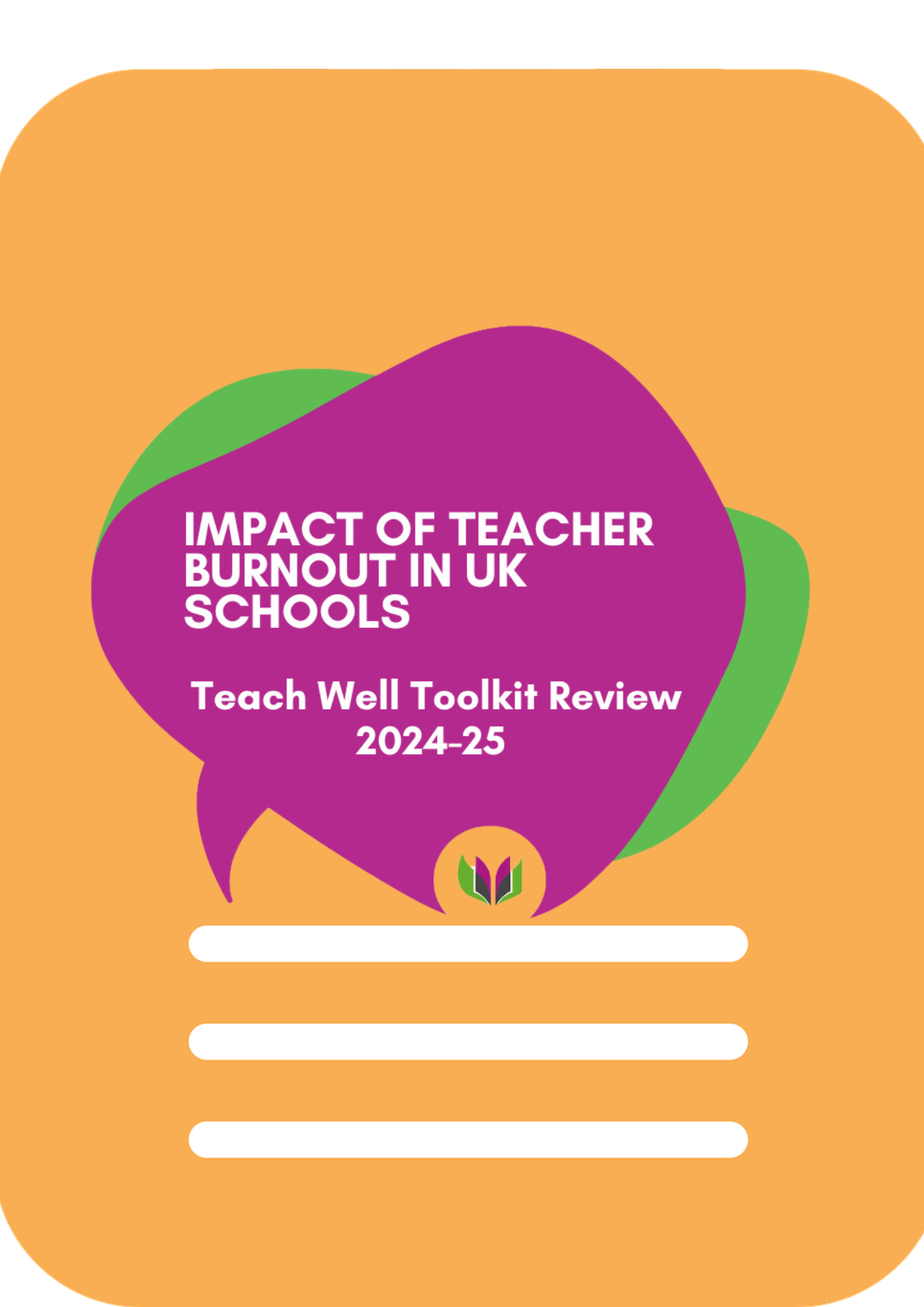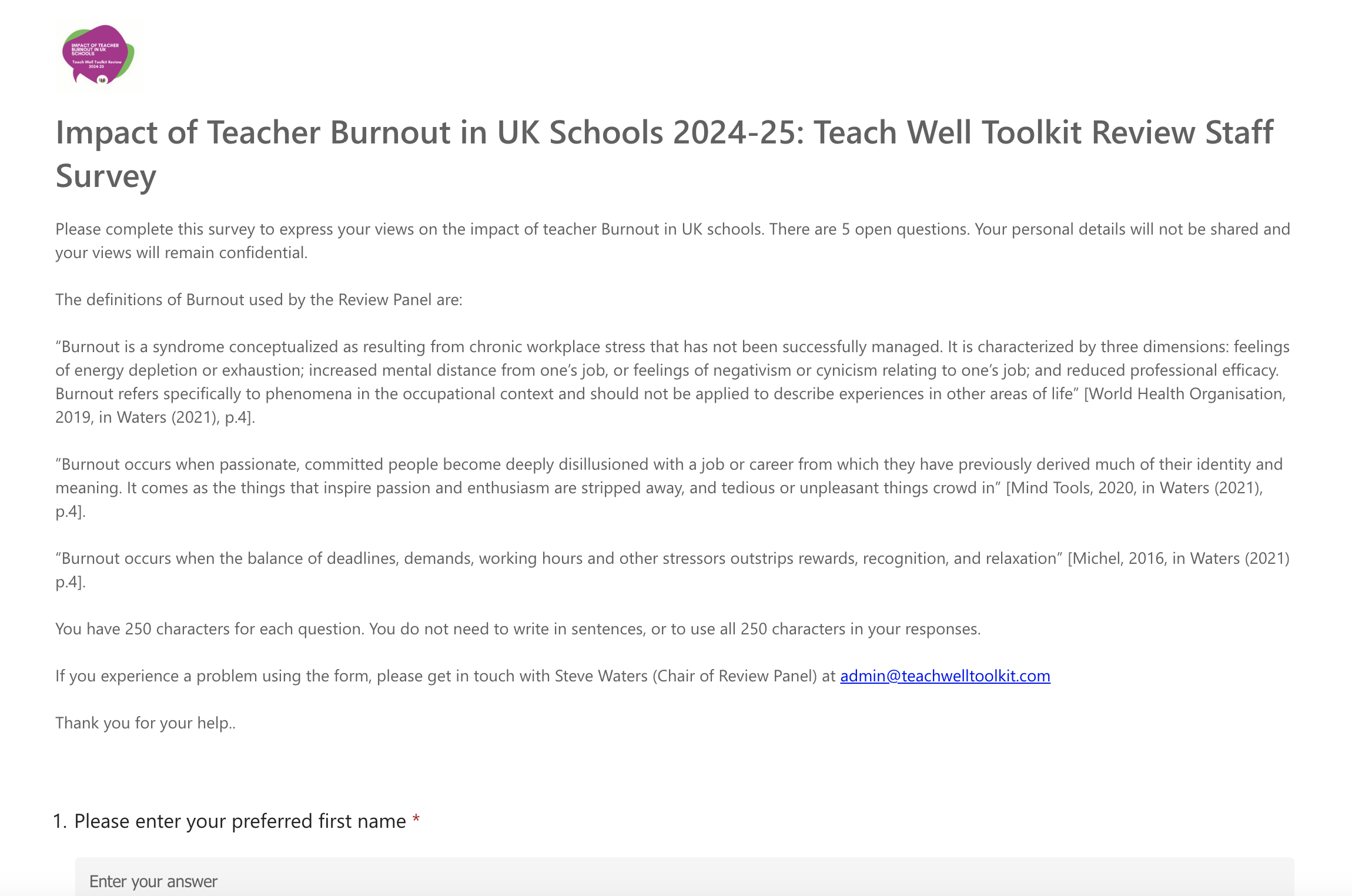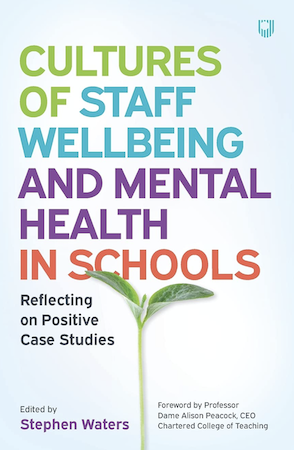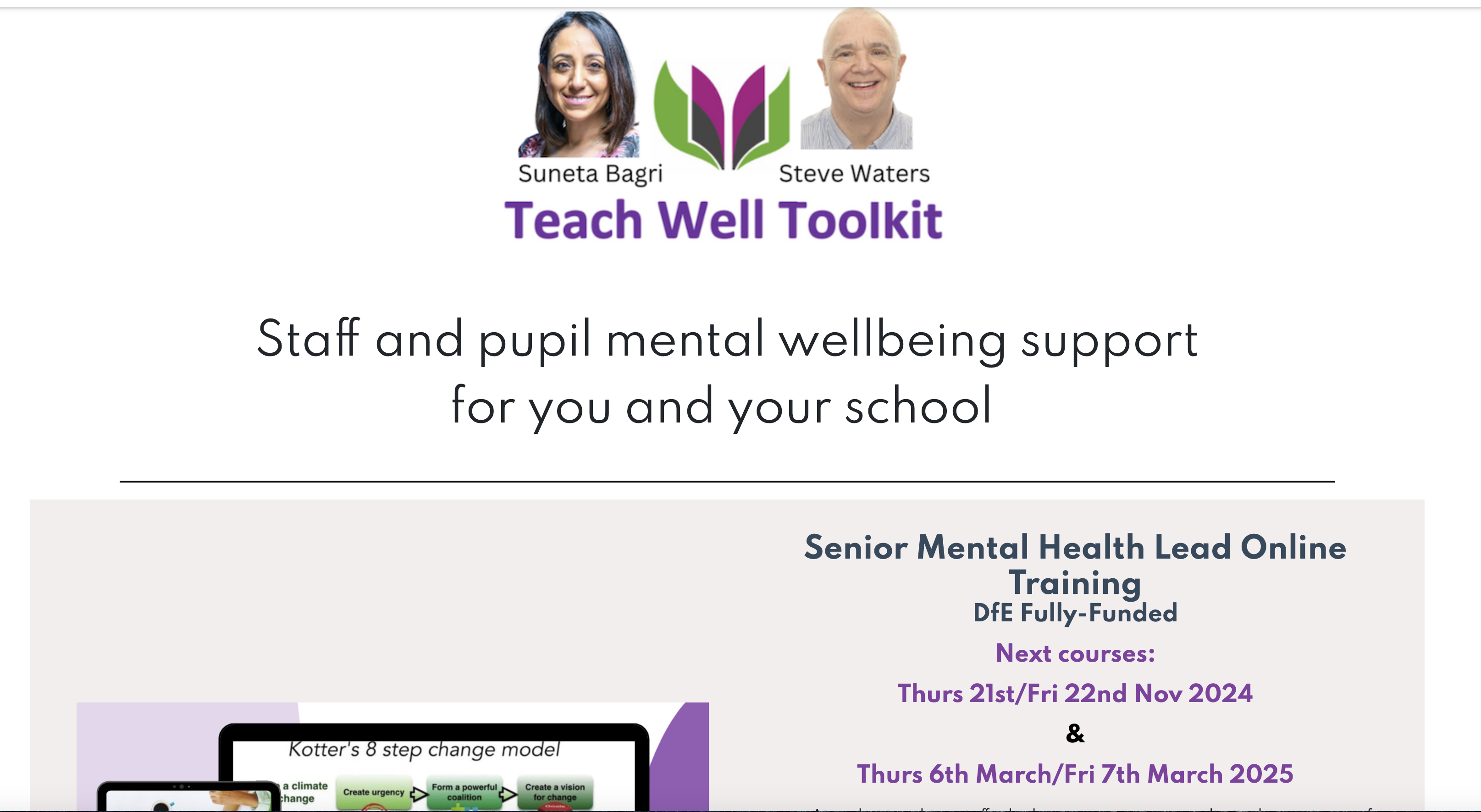The Teach Well Toolkit Review into the Impact of Teacher Burnout in UK Schools and how to reduce it.
This review is a practitioner-prompted response to concerns about school staff Burnout. It is not an official DfE review but we hope it will open a dialogue about teacher Burnout and the crisis in retention. It is conducted in the spirit of Edmund Barnett-Ward's (@Edmund_B_W) review into Ofsted, following the tragic death of headteacher Ruth Perry.
What is Burnout?
“Burnout is a syndrome conceptualized as resulting from chronic workplace stress that has not been successfully managed. It is characterized by three dimensions: feelings of energy depletion or exhaustion; increased mental distance from one’s job, or feelings of negativism or cynicism relating to one’s job; and reduced professional efficacy. Burnout refers specifically to phenomena in the occupational context and should not be applied to describe experiences in other areas of life” [World Health Organisation, 2019 in Waters (2021), p.4].
”Burnout occurs when passionate, committed people become deeply disillusioned with a job or career from which they have previously derived much of their identity and meaning. It comes as the things that inspire passion and enthusiasm are stripped away, and tedious or unpleasant things crowd in” [Mind Tools, 2020 in Waters (2021), p.4].
“Burnout occurs when the balance of deadlines, demands, working hours and other stressors outstrips rewards, recognition, and relaxation” [Michel, 2016 in Waters (2021) p.4].




